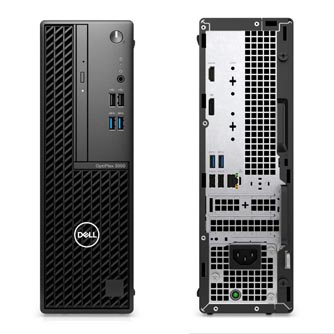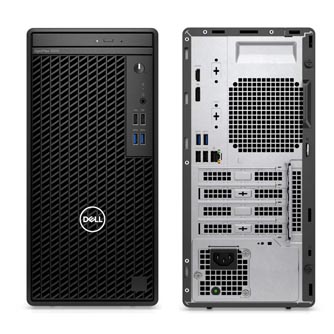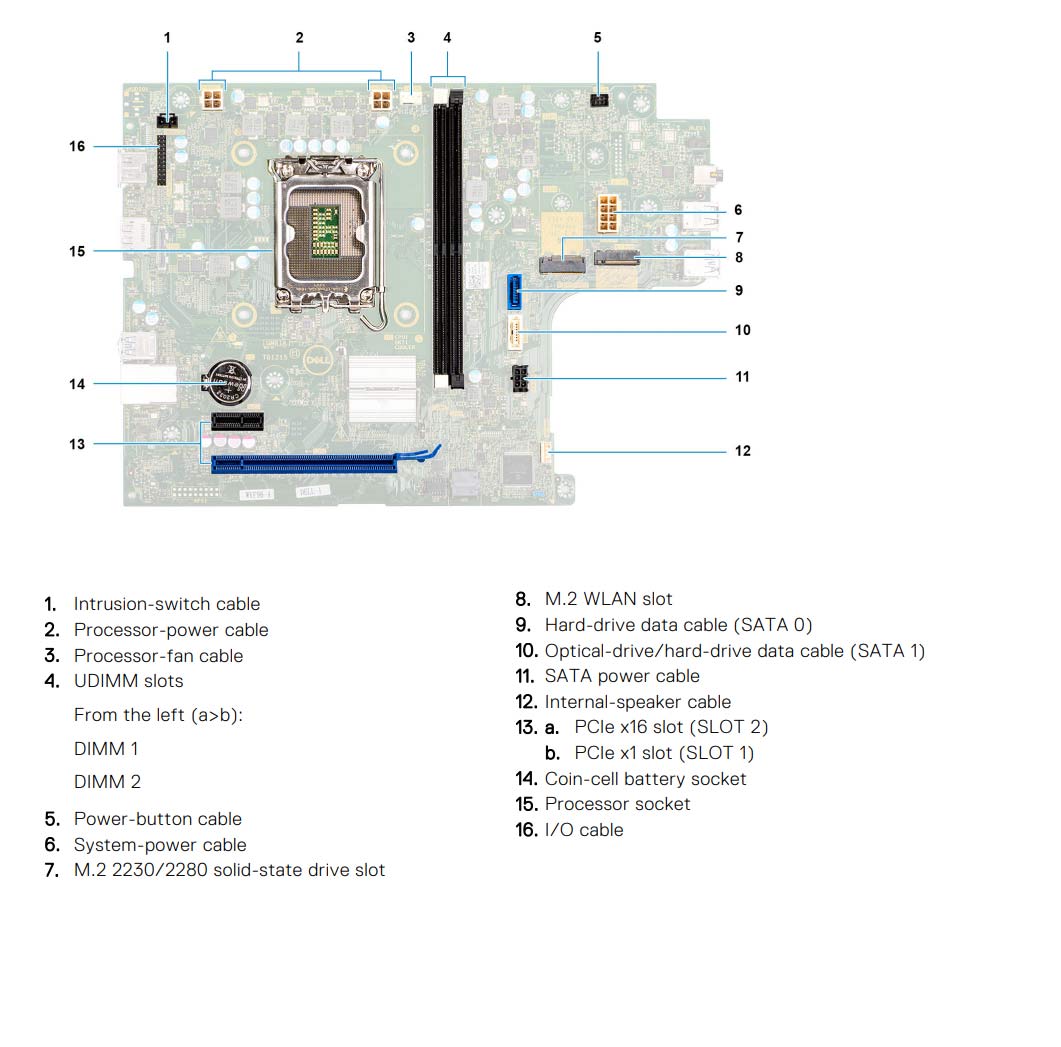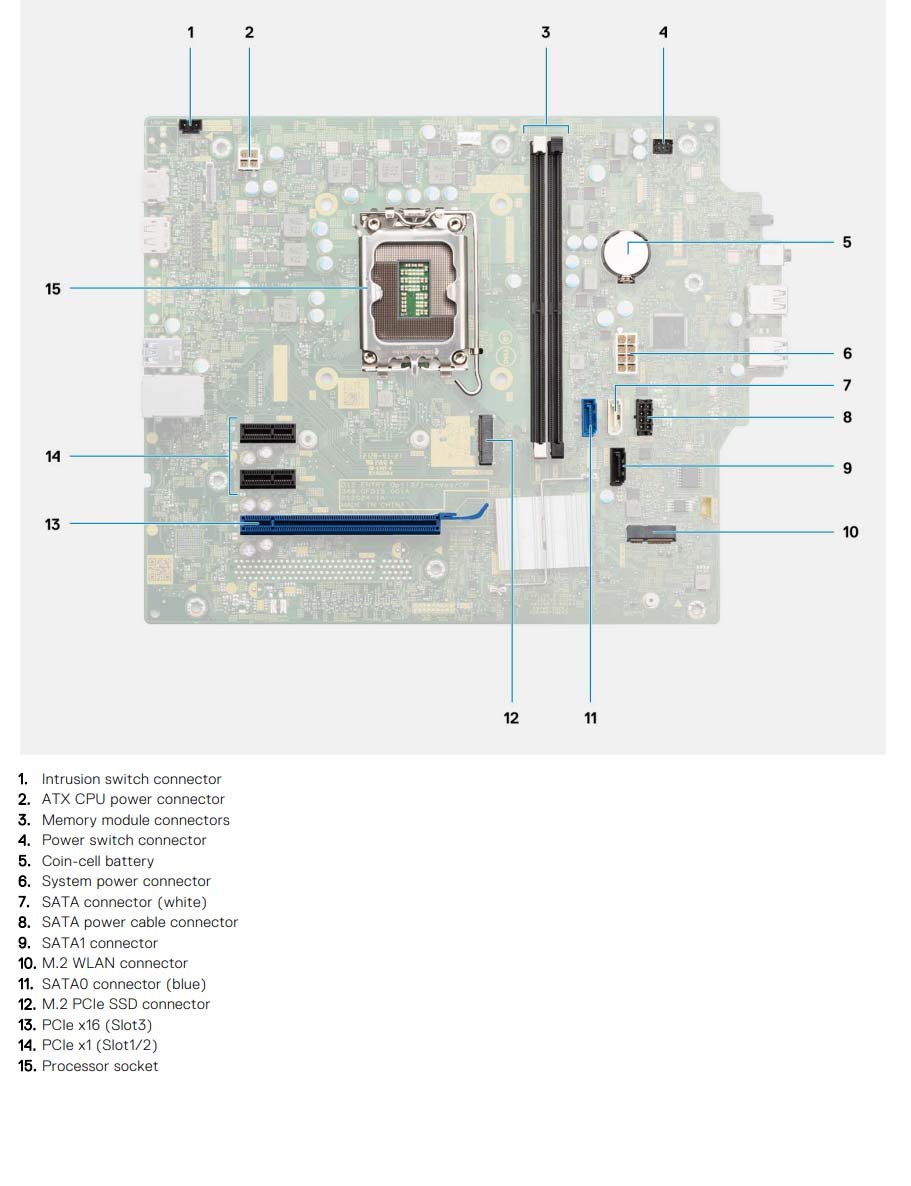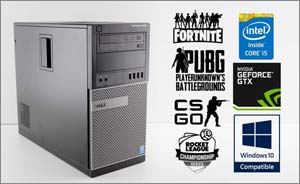Dell OptiPlex 3000 SFF vs. Dell OptiPlex 3000 Tower
Comparison and Differences
Differences between Dell OptiPlex 3000 SFF and Dell OptiPlex 3000 Tower
Both computers, the Dell OptiPlex 3000 Tower and the Dell OptiPlex 3000 SFF, were released during the same year - 2022.
If you are looking for the smaller form factor the Dell OptiPlex 3000 SFF is the right one for you. It is smaller than the Dell OptiPlex 3000 Tower and will fit more easily under your desk.
Processor
The two models have the same generation of Intel processors. We think that the 12 generation of Intel Processors have enough power to execute all of the home and office tasks that most people will care to do.
Memory
Both models have have equal amount of ram slots (2 RAM). Usually two RAM slots are more than enough for most cases. However, the count should be taken into account when planning how much and what combination of RAM you are going to need for your system.
None of the desktops has an advantage when it comes to the speed of the RAM being used. Both models support RAM speeds of up to 3200. In addition, you will be able to install the same amount of RAM in both models, and most probably 64 GB of RAM will be enough for most people. However, if you will be needing more RAM, make sure to check other desktop models too.
Ports
Both models have the same amount of USB ports for total count of 8. If this is not enough, using a USB hub is always a viable option. None of the desktop models has a USB 3.1 port (10Gb/s), so if you need a fast connection to your peripherals, like external Solid State Drive, you will need to look elsewhere.
The DisplayPort is usually the more popular video port used with desktops and laptops, while the HDMI is used predominantly in consumer electronics. That's why, it is good to see that both of the models come with a DisplayPort.
In case your monitor supports HDMI only, you will be happy to hear that both models come with an HDMI port.
SATA ports are placed on the system board and it is where you connect your HDD, SSD and Optical Disk Drives. More SATA slots will allow you to have more drives running at the same time. In this regard the Dell OptiPlex 3000 Tower is better equipped as it comes with 3 SATA slot(s), while the Dell OptiPlex 3000 SFF has 2 slot(s).
When your goal is to have the fastest SSD transfer speeds, an M.2 interface is crucial. Thus, it is good that both models have M.2 SSD slots. Today M.2 SSDs are not much more expensive than the average SATA drives, so it really does not make sense to invest in SATA drives anymore.
Make sure that the available M.2 slot supports the PCIe (also called NVMe) interface. This is important as there are M.2 slots which support only the inferior SATA III interface. For comparison, the SATA III interface has max speeds of 6Gb/s, while the PCIe 3.0 x4 will support speeds up to 32Gb/s!
Power Supply
Looking at the Power Supply Unit (PSU) of the two models we don't see any differences. For either of them you get a maximum power of 300 Watts. However be careful, many models have more than one power supply option. When buying your computer, it is a good idea to get a version with the most powerful PSU. This will potentially allow you to upgrade to a more powerful GPU for example.

